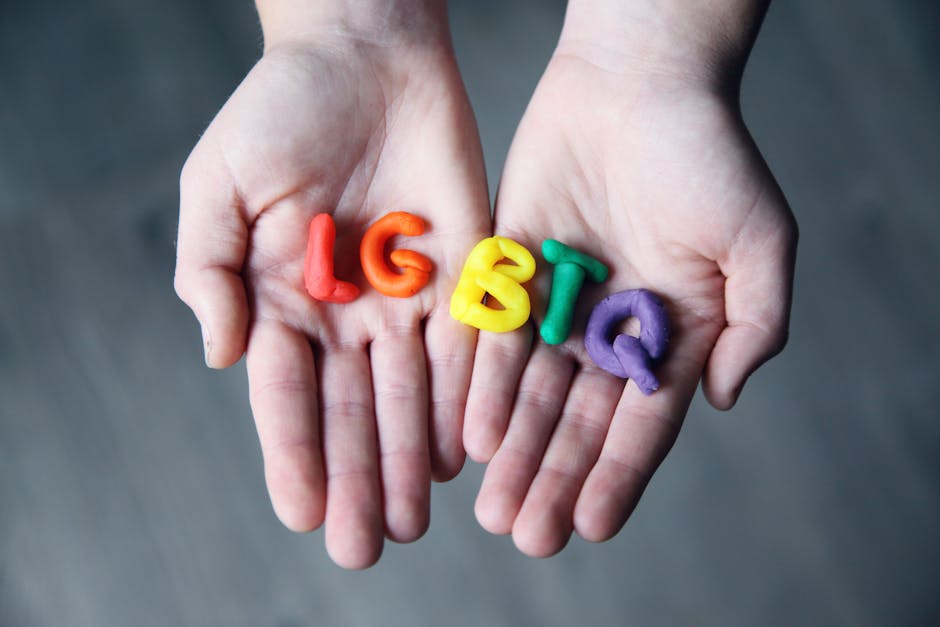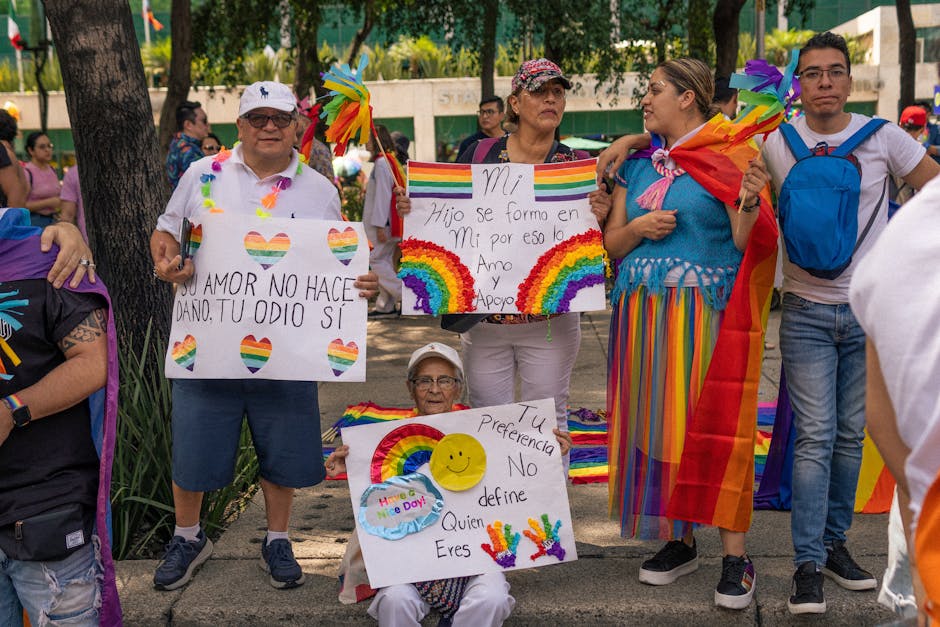PRIDE Month and Addiction in the LGBTQ+2S Community: A Comprehensive Canadian Perspective on Inclusive Recovery
PRIDE Month is not only a vibrant celebration of diversity, acceptance, and equality within the LGBTQ+2S community but also a poignant reminder of the challenges that persist beneath the façade of colorful parades and festive gatherings. One such challenge is the pervasive issue of addiction, a concern that disproportionately affects LGBTQ+2S individuals. In Canada, the intersection of diverse identities and substance use disorders demands attention to specialized, inclusive treatment approaches that respect the unique vulnerabilities and experiences of this community. This article delves deeply into the complexities of addiction within the LGBTQ+2S community, shedding light on Canadian healthcare statistics, illustrating progressive programs, and underscoring the importance of culturally competent care in fostering meaningful recovery.
The Scope of Addiction in the LGBTQ+2S Community

Discourse around addiction within the LGBTQ+2S community frequently highlights a troubling trend: individuals identifying as LGBTQ+2S are significantly more impacted by substance use disorders than their heterosexual counterparts. According to extensive research by Statistics Canada, this heightened vulnerability can be attributed to myriad factors, such as pervasive societal stigma, entrenched discrimination, and intergenerational trauma that collectively exacerbate mental health challenges [Source: Statistics Canada]. The Public Health Agency of Canada further elucidates that these chronic stressors symbolize a critical driver behind the elevated rates of substance use, stressing the urgent need for LGBTQ+ targeted addiction treatment solutions that acknowledge and address these factors [Source: Public Health Agency of Canada].
Understanding the Factors Contributing to Higher Addiction Rates
In-depth research consistently indicates that LGBTQ+2S individuals encounter unique psychosocial challenges that influence their mental health and predispose them to addictive behaviors. Internalized homophobia, family rejection, and societal marginalization are commonly reported stressors that foster a higher susceptibility to addiction as a form of self-medication [Source: Journal of Substance Abuse Treatment]. Notably, the phenomenon known as “chemsex”—the deliberate use of drugs to intensify sexual experiences—prevalent in certain sectors of the LGBTQ+2S community, underscores an additional layer of complexity to substance use patterns [Source: CCSA]. Understanding these intricate dynamics is vital for developing effective treatment interventions tailored to this community.
Canadian Healthcare Focus: Programs and Initiatives

Recognizing the unique challenges faced by LGBTQ+2S individuals, Canada’s healthcare system has actively developed and implemented a number of inclusive programs aimed at addressing addiction treatment. These initiatives are integral to providing effective, empathetic care that aligns with individual lived experiences. In cities like Toronto, Addiction Rehab Toronto stands out with its specialized LGBTQ+ rehab services, which are meticulously designed to cater to the distinct needs of this community. Their comprehensive programs highlight trauma-informed care and dual diagnosis treatment, acknowledging the frequent co-occurrence of mental health disorders and substance use issues [Contact: (833) 313-7848, lazar@addictionrehabtoronto.ca].
Trauma-Informed Care and Dual Diagnosis Treatment
Evidence robustly supports the efficacy of trauma-informed care for LGBTQ+2S individuals, particularly for those whose trauma is intertwined with their sexual orientation or gender identity. This holistic approach prioritizes safety and empowerment, creating nurturing environments conducive to healing and recovery. Dual diagnosis treatment centers throughout Ontario have a commendable focus on addressing the intersection of mental health and addiction, offering a seamless blend of therapeutic strategies to manage and treat co-occurring disorders effectively [Source: Health Canada].
Harm Reduction Strategies and Culturally Competent Care

Within the realm of addiction recovery, harm reduction strategies for the LGBTQ+ community play a crucial role in mitigating the adverse impacts of substance use while simultaneously upholding individual autonomy and respect. Key strategies encompass providing access to safe injection facilities, delivering overdose prevention education, and offering LGBTQ+-tailored mental health support services. Advancing culturally competent care forms the backbone of these efforts, ensuring healthcare practitioners possess a profound understanding of the diverse identities within the LGBTQ+2S community and respond with the requisite sensitivity and empathy [Source: Canadian Centre on Substance Use and Addiction].
Implementing Culturally Competent Care
For healthcare professionals, receiving comprehensive training in LGBTQ+ culturally competent care is essential for creating inclusive, affirming environments in addiction recovery settings. This involves an acute awareness of the unique challenges gay, trans, and non-binary individuals navigate in pursuit of sobriety. By fostering environments where individuals feel safe, accepted, and valued, treatment centers can significantly enhance recovery outcomes and bolster long-term sobriety [Source: Public Health Agency of Canada].
LGBTQ+ Sober Living and Aftercare Programs

In progressive strides toward supporting recovery, sober living environments tailored to LGBTQ+2S individuals offer refuge—safe spaces devoid of discrimination. In Toronto, specifically, LGBTQ+ sober living homes cultivate a supportive milieu that not only reinforces sobriety but also nurtures personal growth and community belonging. Complementary aftercare initiatives, including LGBTQ+ peer support groups and family therapy sessions, serve as vital components of a holistic recovery strategy, facilitating seamless reintegration into society and mitigating the risk of relapse [Contact: Addiction Rehab Toronto at addictionrehabtoronto.ca].
Relapse Prevention and Support Networks
Addiction Rehab Toronto Counsellor Speaking About Relapse Stages and Prevention Strategies
Central to the sustainability of addiction recovery are multifaceted relapse prevention strategies that highlight the importance of developing adaptive coping skills and preemptively recognizing potential triggers. Personalized LGBTQ+ relapse prevention plans accommodate the specific challenges endemic to this community, such as overcoming societal stigma and confronting internalized discrimination. Support networks, comprising LGBTQ+ recovery narratives and widespread alumni engagement programs, offer continuous encouragement and illustrate the potential for a fulfilled, sober lifestyle [Source: Health Canada].
Ready to Take the Next Step?
Our compassionate team at Addiction Rehab Toronto is here to support you on your journey to recovery.
Conclusion: Moving Forward with Inclusive Recovery
As PRIDE Month unfolds, it is imperative to reflect on and actively address the enduring battle against addiction within the LGBTQ+2S community. By embracing inclusive, culturally competent care frameworks and implementing evidence-based strategies, society can effectively tackle the nuanced challenges that LGBTQ+2S individuals face in their recovery journeys. Noteworthy organizations like Addiction Rehab Toronto exemplify leadership in this domain, providing specialized care and a suite of resources that empower individuals to achieve lasting sobriety and mental wellness. For those seeking LGBTQ+ addiction help in Toronto, an abundance of resources and supportive networks is readily available. Contact Addiction Rehab Toronto for personalized support at (833) 313-7848 or lazar@addictionrehabtoronto.ca.




